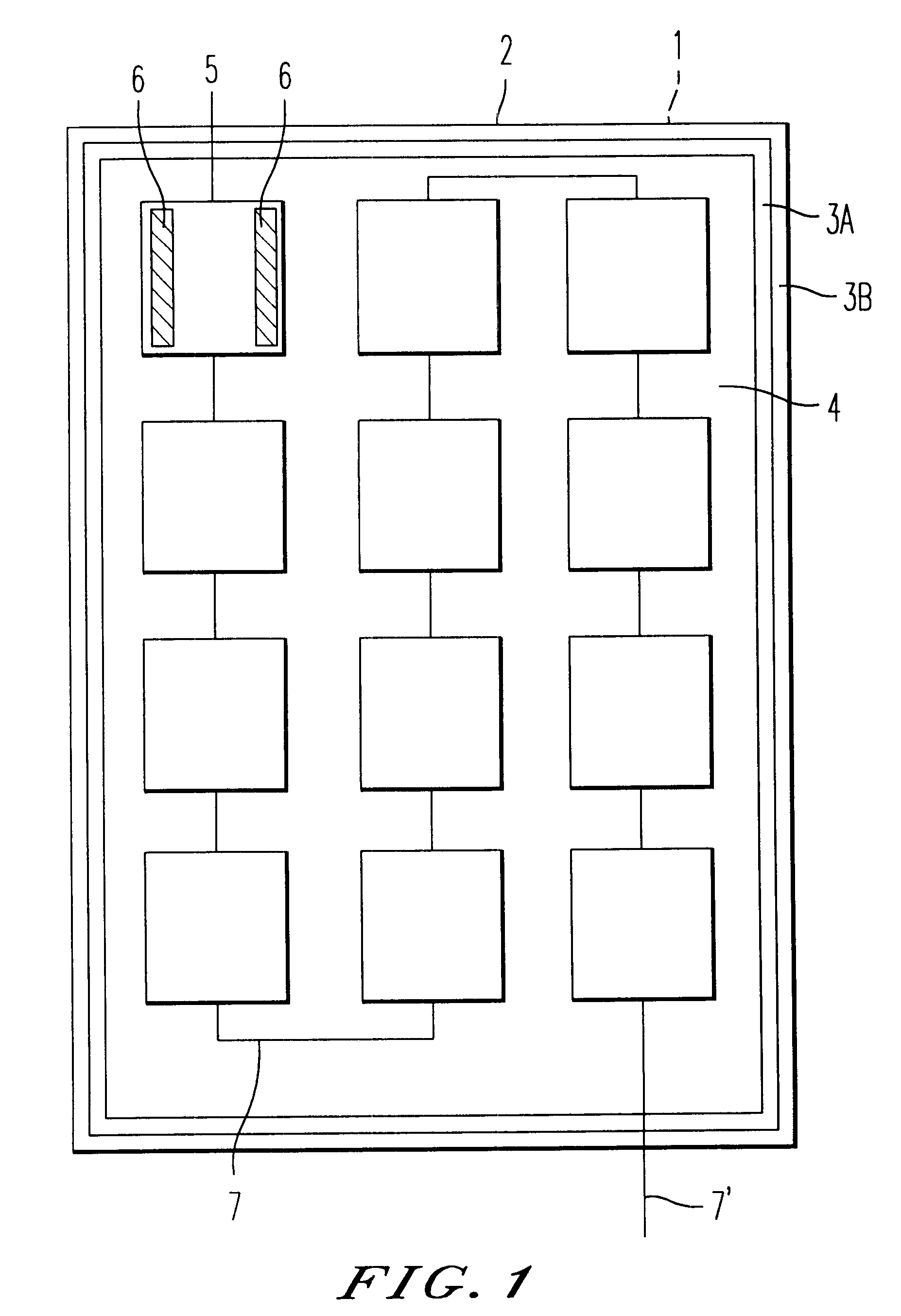Photovoltaic element
a photovoltaic element and photovoltaic technology, applied in the direction of organic non-macromolecular adhesives, pv power plants, sustainable buildings, etc., can solve the problems of destroying cells, high cost of fixing methods, and affecting the effect of the implantation medium
- Summary
- Abstract
- Description
- Claims
- Application Information
AI Technical Summary
Problems solved by technology
Method used
Image
Examples
Embodiment Construction
In a preferred arrangement, a plurality of photovoltaic cells (5), for example an array of 10.times.10 cells with intermediate spacings of about 1 cm, were fixed on a polymethyl methacrylate plate (2) with a surface area of 150.times.150 cm and a thickness of 1 cm, using for each two transparent adhesive strips (6) measuring, for example, 0.5.times.5 cm and comprising double-sided elastic acrylate adhesive tape, the cells being connected by conductor tracks (7). Current-collecting cable (7') of the electric cell assembly was brought out on one side. For the sake of clarity, the outgoing cabling of the first cell is not shown. A plurality of polymethyl methacrylate spacer pads (8) measuring 1.times.1 cm and having a thickness of 1 mm were attached adhesively by moistening the interface to plate (2) with methylene chloride.
A barrier layer (3a) comprising a compliant acrylate adhesive (polyethyl acrylate dissolved in ethyl acetate) was now applied on the assembly of photovoltaic cells....
PUM
| Property | Measurement | Unit |
|---|---|---|
| wt % | aaaaa | aaaaa |
| thickness | aaaaa | aaaaa |
| edge length | aaaaa | aaaaa |
Abstract
Description
Claims
Application Information
 Login to View More
Login to View More - R&D
- Intellectual Property
- Life Sciences
- Materials
- Tech Scout
- Unparalleled Data Quality
- Higher Quality Content
- 60% Fewer Hallucinations
Browse by: Latest US Patents, China's latest patents, Technical Efficacy Thesaurus, Application Domain, Technology Topic, Popular Technical Reports.
© 2025 PatSnap. All rights reserved.Legal|Privacy policy|Modern Slavery Act Transparency Statement|Sitemap|About US| Contact US: help@patsnap.com



